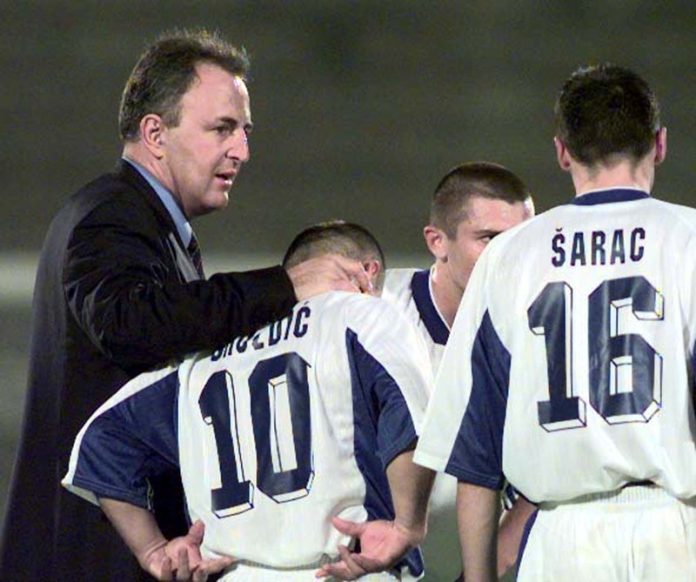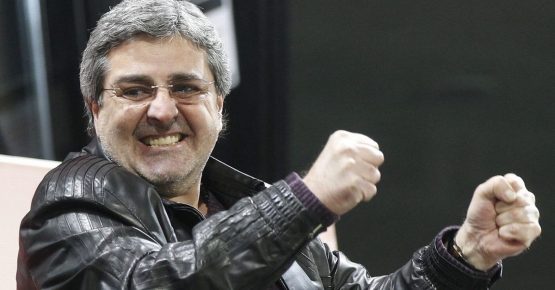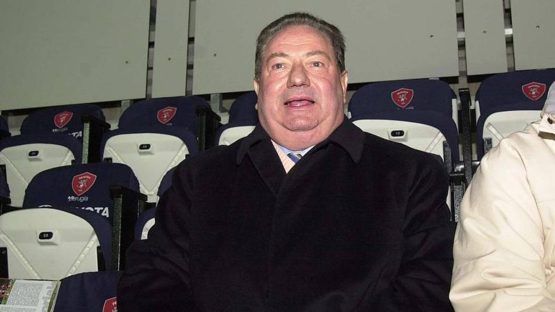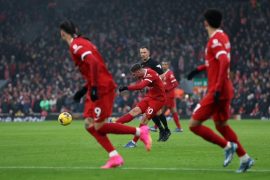After Sheffield Wednesday owner Dejphon Chansiri called on his own fans to raise money in order to escape a transfer embargo, we list some of football’s worst club owners.
“If 20,000 people gave £100 then it’s £2m, and it’d be clear – so we can finish it. That would cover everything, HMRC and the wages.”
Those are the words of Sheffield Wednesday’s Dejphon Chansiri, who has once again taken aim at disgruntled fans amid the threat of a multi-window transfer embargo; the result of an accruement of debt.
Following protests from match-going spectators during last month’s 1-1 draw against Middlesbrough, the Thai businessman said “some fans need to have more respect for owners of clubs.”
Six points from a possible 42 is the kind of form that mirrors the Championship’s worst ever points tally, and this latest comment from Chansiri is likely to incite further hatred from the Owls’ fanbase.
The latest threat of embargo is one of a series of controversies since Chansiri took over in 2015. Two previous embargoes in 2018 and a soft one the following summer punctuated a protected legal battle with the EFL, after he attempted to sell Hillsbrough Stadium to another company he himself owned, which in turn, breached financial regulations.
It is grim reading for Wednesday fans at this moment in time, so hopefully you can find a slither of comfort in the fact that Chansiri’s latest transgressions pale in comparison to our list of football’s worst owners.
Football’s Worst Club Owners
Bulat Chagaev (Neuchatel Xamax)
The Swiss Super League, which potters along year after year without much noise or many controversies, provides the perfect juxtaposition for our first club owner.
Bulat Chagaev took over at the helm of Neuchatel Xamax in 2011. They are a small club, nestled in the foothills of the Jura mountains in the breathtaking town of Neuchâtel – the jewel in the crown on the northern shore of its eponymous lake.
Within eight months of his frenzied tenure, the widely erratic Chechen businessman had sacked four separate coaches and removed not only the entirety of the clubs administrative staff, but also severed ties with each and every one of their local sponsors.
To make matters worse, Chagaev was charged with forgery after allegedly falsifying a Bank of America document. The document in question was used to proved Chagaev’s solvency after a player’s agent attempted to push Xamax into bankruptcy over debts exceeding $400 million.
This was further compounded by the fact Chagaev was living in the country illegally at the time, after being found to not have a residence permit.
No administrative staff also meant no tickets could be printed, and Neuchatel Xamax filed for bankruptcy less than a year after he took over.
As a result, they have tumbled down the divisions and now ply their trade in the second tier of Swiss football.
Luciano Gaucci (Perugia)
Luciano Gaucci, the former owner of Italian side Serie C side Perugia, was a larger than life character in every sense of the word.
A frame resembling that of Monty Python’s Mr Creosote, Gaucci may appear on the surface to be a rounder-than-usual-racketeer, but he managed to flitter between illegality and successful club ownership for a number of years.
He managed to take Perugia from the third tier of Italian football, all the way to the Serie A within five years. This was, as the article headline would suggest, not without controversy.
The first being an alleged dealing with a referee, to whom he sold one of his horses to. For context, Gaucci enjoyed success as a horse racing owner, and is perhaps best known for his surprise win at the 1988 Prix de l’Arc de Triomphe with Tony Bin.
That ultimately denied them promotion to Serie B in the 1992-93 season after the referee spilled details of lavish lunches with Gaucci, who was subsequently barred from attending matches for three years. That didn’t stop him from arriving at the stadium on weekends and paying a hefty fine every time.
Known for his ability to unearth talent in the far reaches of the world – something that was a rarity in Italian football at the time – one such hidden gem from South Korea led to a quite remarkable story.
After picking up Jung-Hwan Ahn in the winter of 2002, he would last less than two years following Italy’s exit from the World Cup in 2002, where the South Korean scored the golden goal which sent Gaucci’s compatriots packing.
He is quoted as saying: “I’m a nationalist, and with his behaviour he hurt my Italian pride as well as this whole country, that opened its doors for him two years ago.”
After refusing to pay Ahn’s wages, the player was forced to make the move back to his home continent with Japanese side Shimizu S-Pulse.
Perugia would later go bankrupt following relegation from Serie A, prompting Gaucci to flee Italy for the Dominican Republic, where he would stay in hiding for the next four years.
He died in 2020 aged 81.
Zeljko Raznatovic (Obilic)
Zeljko Raznatovic, or better known in the world of organised crime as Arkan, raised eyebrows when taking control of second division minnows FK Obilic in 1996, who share Belgrade with Serbia’s largest and most successful clubs, Partizan and Red Star.
Named after an anti-Ottoman fourteenth century knight, Obilic became the perfect breeding ground for Serbian nationalists following the fall of Yugoslavia. Raznatovic, being an opportunist, sought to establish a new footballing superpower in the capital after being knocked back in his attempt to take over at Red Star, who remained state-owned.
A former head of a paramilitary force dubbed the Serb Volunteer Guard during the Yugoslav Wars, he was previously put on Interpol’s most wanted list for two decades before the conflict even began.
Obilic began to add Serb Volunteer Guards, or ‘Arkan’s Tigers’ as they are known, into the stands as the club began to rise to prominence. Amid an era of bloody violence and hooliganism in Serbian football, the club became a post-war symbol of the Serbian nationalism.
Both Raznatovic and his loyal supports employed the same tactics of intimidation at the club, as they did during war time.
After the war, Arkan led his low-level soccer team, FK Obilic, to championships by threatening opposing players and refs by having his Yugoslav War veterans in the crowd point guns at them DURING THE SOCCER GAMES. pic.twitter.com/81MeWBRxKv
— Justin 🎞 (@justinpalaces) February 26, 2020
After winning promotion in his first season as owner, Obilic went on to win a first division title immediately. While he was by no means the worst football club owner in terms of leading his side to success, the manner in which he achieved it is spine-tingling.
One player, Nikola Lazetic, was allegedly forced into the boot of a car in an attempt to make him sign for Obilic.
Zoran Arsic, a referee in the Serbian top-flight at the time, also claimed to have had a gun held to his head, which prompted the Serbian FA to force him to remain silent on the matter, in exchange for being taken off Obilic fixtures.
Having won the title in 1998, Obilic were also now a Champions League side, which prompted UEFA into action. Raznatovic, a man who had previously stood trial for crimes against humanity, was about to lead his team out on the biggest stage in club football.
This of course presented its own problems for UEFA, who until then had shown little interest in Serbian football and its backdoor dealings with warlords.
It is alleged then-UEFA president Lennart Johansson was the subject of a failed assassination attempt from Obilic loyalists, after he attempted to block the club from playing in the competition.
He managed to escape death during his time as an owner, although other figureheads in Serbian football weren’t so lucky at the time, with a double-digit death toll throughout the mid 1990s. He was later assassinated in 2000, two years after handing over the club to pop star wife Ceca, following an attack in a hotel lobby in Belgrade.
His death also marked a rapid fall from grace for Obilic, who have all but disappeared competitively and most recently competed in the lowest tier of Serbian football.
Add Sportslens to your Google News Feed!









